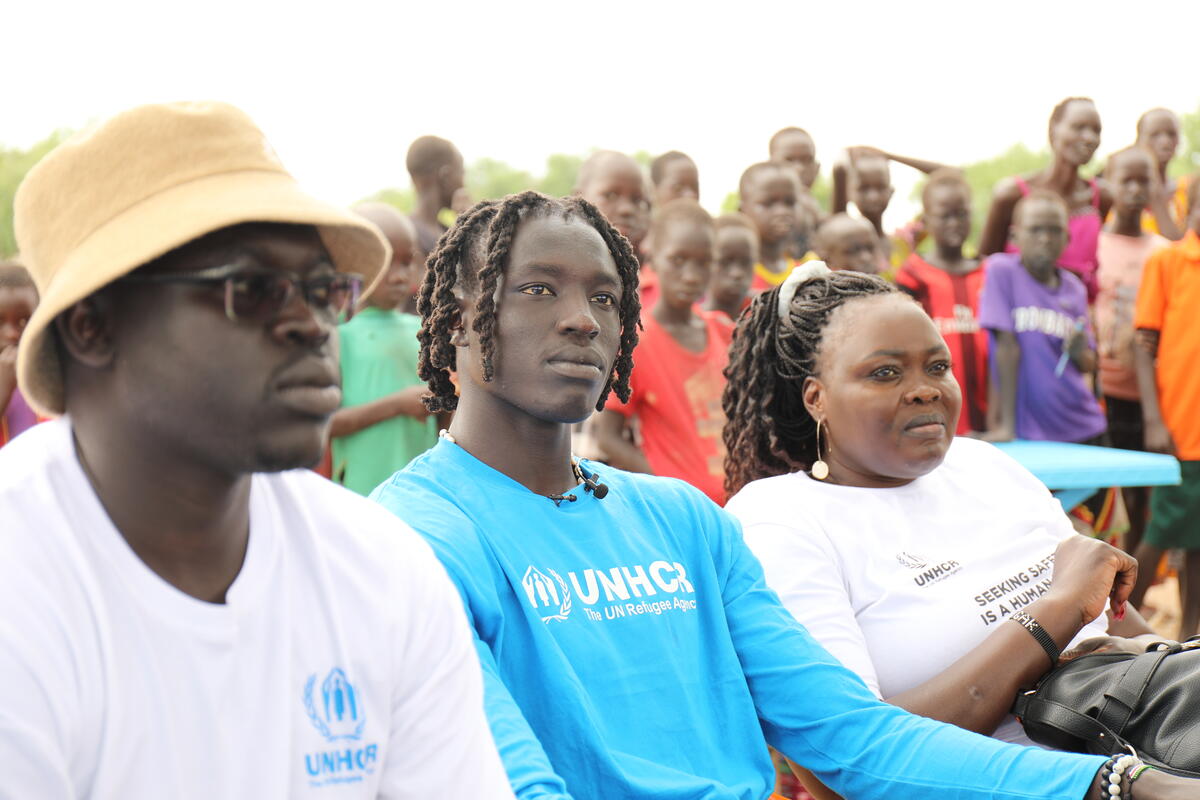Dire humanitarian situation despite improved security across Côte d'Ivoire
Dire humanitarian situation despite improved security across Côte d'Ivoire
The humanitarian situation in Côte d'Ivoire remains alarming for tens of thousands of civilians despite improved security across the country. As our teams reach more displaced people we are seeing substantial needs.
In and around Abidjan, UNHCR staff have regained access to internally displaced people (IDPs) we had been supporting before fighting disrupted our operations. The number of IDPs we had previously registered in 31 sites has dropped from 35,000 at the end of March to 14,000 last week. Living conditions are extremely precarious as people have gone for weeks without adequate food. In a site at Abobo Avocatier, a priest told us that four IDPs had died of stress. One was a 14-year-old boy.
In north-west and central west Côte d'Ivoire our colleagues have reached thousands of people who were forced out of their homes between the end of March and early April. They visited IDPs in at least 15 locations and found that virtually all were living with host families who are themselves running out of resources and living on a single meal per day.
Most people tell us they want to return to their places of origin as soon as possible. However, in many cases homes and villages have been either partially or totally destroyed, and people are traumatized. In some town areas residents go into hiding at night time.
In Duékoué, humanitarian conditions are slowly improving with the return of aid agencies. However, the Catholic church compound remains overcrowded with some 27,000 IDPs. UNHCR has resumed work on a campsite at Nihably village, which we hope to complete within two weeks to decongest the church. We plan to relocate a first group of 8,000 people who are unable to return to their places of origin, and we will expand the camp to accommodate a further 7,000 people if required.
Some 650 IDP families at the Catholic church have signed up for immediate return to their homes in and around the city. Half of them are from Duékoué town itself and the rest are mainly from areas en route to Bangolo, 37 km away. While some families have managed to return on their own, others are waiting for houses to be reconstructed and security restored.
UNHCR has some 30 staff members in western Côte d'Ivoire working to help the IDPs. We have already assisted 43,000 people with shelter materials and household goods. Last week, we received 32 truckloads of additional supplies from our warehouses in Liberia to assist 25,000 more IDPs in the region.
UNHCR welcomes the improved security throughout Côte d'Ivoire, which is allowing us to move around freely and reach the displaced. But we are concerned about the large number of armed checkpoints. On the road from Abidjan to Man for example, we counted 28 checkpoints during a security assessment a week ago. We urge the new Ivorian government to reduce these checkpoints, as they intimidate people wanting to return to places of origin. We also call on the government to reassure the civilian population by speeding up efforts to re-establishing the presence of local authorities.
There are still an estimated 200,000 IDPs in western Côte d'Ivoire. Another 177,500 Ivorians are registered as refugees in 13 West African nations, including nearly 160,000 in Liberia where they continue to arrive at a rate of some 250 per day. Ghana and Togo have also seen a rise in the number of arrivals since the capture of former Ivorian president Laurent Gbagbo on April 11. An increasing number of them are pro-Gbagbo youth claiming to have run away due to fear of reprisals.
For further information on this topic, please contact:
- In Abidjan: Bernadette Kouame on mobile +225 06 73 75 59
- In Monrovia: Sulaiman Momodu on mobile +231 649 38 62
- In Accra: Ewurabena Hutchful on mobile +233 244 33 19 25
- In Geneva: Fatoumata Lejeune-Kaba on mobile +41 79 249 3483









